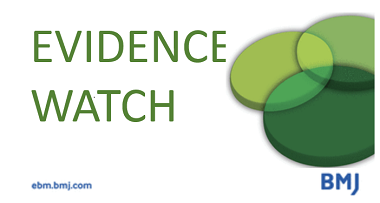A New Zealand study sets new standards for predicting cardiovascular risk and questions the validity of pre-existing risk equations
Carl Heneghan

Prevention of cardiovascular disease relies on identifying those most at risk. Most cohorts of patients were established many years ago with patients at higher risk. A recent prospective cohort study done in New Zealand representing primary care patients found that most individuals seen in primary care were at low risk of cardiovascular disease, and that pre-existing risk scores substantially overestimated risk.
The PREDICT study automatically recruited participants in primary care at the point of risk assessment and linked them to ICD-hospital codes and mortality data. 401 752 people aged 30-74 years were assessed between 2002, and 2015. Mean follow-up was 4·2 years, and 15 386 (4%) people had cardiovascular events: 1507 (10%) of these were fatal.
The median 5-year CVD risk was 2·3% in women and 3·2% in men, and the adjusted risk increased with socioeconomic deprivation, and in certain ethnic groups (Māori, Pacific, and Indian patients).
The results of this study show that primary care equations, based on historical data, require calibration by some margin. Currently recommended American risk equations overestimated cardiovascular disease in the New Zealand population by about 40% in men and by 60% in women.
Overestimation of cardiovascular risk is not new; previous studies have shown that the American equations overestimate CVD risk, particularly in modern multi-ethnic cohorts.
Given the comprehensive, prospective nature of this cohort, it would be wise for other countries to assess calibration in primary care populations with the PREDICT data, which sets new standards for how to assess CVD risk. We need linked prospective cohort studies to inform practice when it comes to assessing risk.
References
Cardiovascular disease risk prediction equations in 400 000 primary care patients in New Zealand: a derivation and validation study. Lancet. 2018 May 12;391(10133):1897-1907. doi: 10.1016/S0140-6736(18)30664-0. Epub 2018 May 4.
Risk score overestimation: the impact of individual cardiovascular risk factors and preventive therapies on the performance of the American Heart Association-American College of Cardiology-Atherosclerotic Cardiovascular Disease risk score in a modern multi-ethnic cohort. Eur Heart J. 2017 Feb 21;38(8):598-608. doi: 10.1093/eurheartj/ehw301.
An analysis of calibration and discrimination among multiple cardiovascular risk scores in a modern multiethnic cohort. Ann Intern Med. 2015 Feb 17;162(4):266-75. doi: 10.7326/M14-1281.
More from BMJ EBM

BMJ Evidence-Based Medicine – original evidence-based research, insights and opinion
Read more about BMJ EBM content in the Welcome to BMJ Evidence-Based Medicine Editorial.
Competing interests
Carl has received expenses and fees for his media work including BBC Inside Health. He holds grant funding from the NIHR, the NIHR School of Primary Care Research, The NIHR Oxford BRC and the WHO. He has also received income from the publication of a series of toolkit books. CEBM jointly runs the EvidenceLive Conference with the BMJ and the Overdiagnosis Conference with some international partners which are based on a non-profit model.